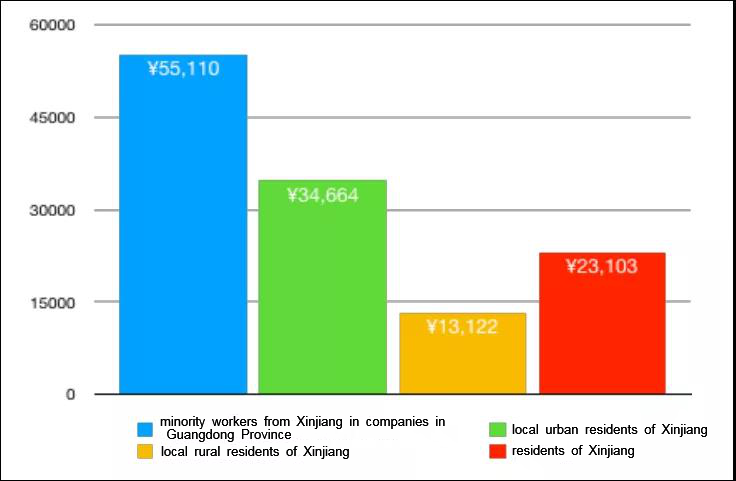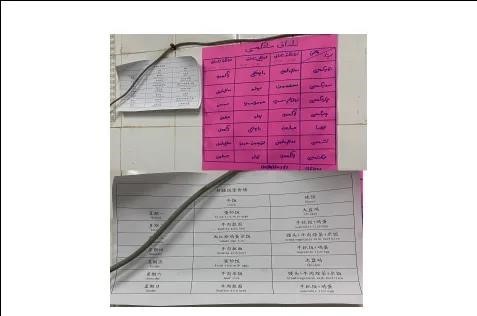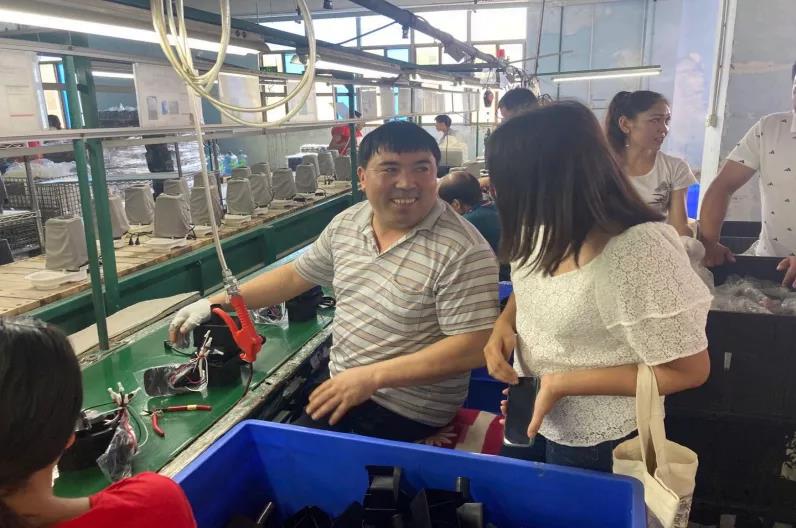- ABOUT JNU
- ADMISSION
-
ACADEMICS
- Schools and Colleges
-
Departments and Programs
- Arts College of
- Chinese Language and Culture College of
- Economics College of
- Electrical and Information Engineering College of
- Foreign Studies College of
- Information Science and Technology College of
- Environment School of
- Humanities School of
- International Business School
- International Studies School of
- Journalism and Communication College of
- Law School
- Liberal Arts College of
- Life Science and Technology College of
- Management School of
- Marxism School of
- Medicine School of
- Pharmacy College of
- Physical Education School of
- Science and Engineering College of
- Shenzhen Tourism College
- Research Institute
- Research Center
- Programs in English
- Majors
- Study Abroad
- Online Learning
- RESEARCH
- CAMPUS LIFE
- JOIN US
Latest News
2 JNU Researchers Publish Report on Xinjiang Minority Workers
Date: March 31, 2021
Author: Xiong Chaoran
Nilufer Gheyret and Ning Chen, JNU researchers from the Xinjiang Uygur Autonomous Region, spent nine months completing a detailed, comprehensive research report on members of ethnic minorities from Xinjiang working in Guangdong. They investigated five companies in Guangdong that employ 474 ethnic-minority workers from Xinjiang and interviewed 70 workers, including Uygurs, Kazakhs, Kyrgyz and Tajiks. Their research used focus group interviews, in-depth interviews, participatory observation and other methods to study the five companies, including the two mentioned in a report published by the Australian Strategic Policy Institute that denigrates the Chinese government's labor transfer policy as an extension of forced labor.”

Nilufer Gheyret (left) and Ning Chen
During the investigation, the JNU researchers found that the migrants were working outside Xinjiang of their own accord and that their work had many positive effects, including boosting their income and broadening their horizons. They also found that the rights of ethnic minority workers from Xinjiang have been fully guaranteed.
In fact, the report said, labor transfer policy is one way to achieve excellent results in national poverty alleviation, and the Chinese government, together with the people of all ethnic groups in China, has won an all-around victory in the fight against poverty and created a miracle in history.

(A focus group interview with ethnic minority workers from Xinjiang)
The research found these workers chose to work outside of Xinjiang for these reasons:
•36% for higher income.
•24% because of introductions by family and friends.
•15% for the agreeable natural environment.
•13% for better educational resources for their children.
•8% to improve language and vocational skills.
•5% to broaden their horizons.
According to the report, higher salaries are one important reason attracting the migrants to work outside Xinjiang. This research showed that the average annual income of these 474 workers from Xinjiang was about 55,110 yuan per person (based on 11 months of work in a year, with a one-month vacation to go home every year). Even the lowest-paid cook can earn 38,500 yuan a year.

(Pay slips of minority workers from Xinjiang in a company in Guangdong show that the actual salary for August 2020 was 6,425 yuan.)
According to The Statistical Communique on the National Economic and Social Development of Xinjiang Uyghur Autonomous Region in 2019, residents' per capita disposable income was 23,103 yuan, 34,664 for urban residents and 13,122 for rural residents.

(Income comparison between minority workers from Xinjiang in Guangdong and residents in Xinjiang)
The five companies studied all provide free dormitories for minority workers, generally two to four people per room. The dormitories are equipped with independent washrooms and bathrooms and common household appliances such as air conditioning and washing machines. For couples, the companies will provide free or cheap (100 yuan per month) couple's rooms, and some workers choose to live off-campus (300 to 400 yuan per month).

(Menus in three languages in the canteen of Xinjiang minority workers in a company in Guangdong.)

(An interviewer with a Kyrgyz worker from Xinjiang who brought a family of five to work in Guangdong in the production workshop.)
Because the report comes during a boycott of Xinjiang cotton by brands such as BCI and H&M, it has been gaining more attention.
It made me so furious, and I couldn't sleep well the whole night when I saw H&M and some brands like Nike make statements boycotting Xinjiang cotton, Gheyret said. I am also from Xinjiang, and my hometown is also a really important place for growing cotton. I think the Western media or the organizations who have this kind of thinking and accusations should come to Xinjiang and see the truth themselves.
NEWS
- About the University
- Quick Links
Copyright © 2016 Jinan University. All Rights Reserved.




